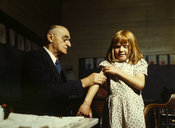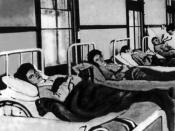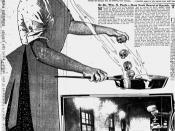Mary Mallon, in her day, caused the outcry of many citizens living in New York during the early 1900s. The outcry was for two differing reasons, firstly that she was a carrier of typhus and thus damaging and threateningly lethal to the city's population, and on the opposite extreme that she had rights as a person and should not have been incarcerated by the New York health administration. Mary Mallon, or more commonly known as Typhoid Mary, blurred the boundaries between the rights of the individual and the rights of society, and thus caused the contention that still exists around the issue of her incarceration to this day. Born in Ireland, Mary Mallon had only one profession, to cook. This in itself did not cause any problems; too the extent that if she was more hygienic in her preparations she would not have been labelled Typhoid Mary, the problems that arose from Mary Mallon's cooking was that she, from some time early in her childhood, carried the typhoid fever disease without it affecting her, and thus she passed in onto virtually anyone who ate her food.
The contentious issue surrounding Mallon, in my opinion, did not arise until she was first incarcerated by the New York health department. This initial incarceration was said to be for her own benefit, to teach her about the effect she was having on others and why she was giving others typhoid fever through her food preparation. It was also said at her appeal that her initial incarceration was for the protection of society. This conflict between the individual rights of Mallon versus the rights of society in this regard is difficult to asses, however he appeal was rejected and thus siding with society. After she was later released with instructions to never go...


